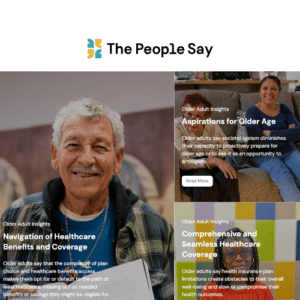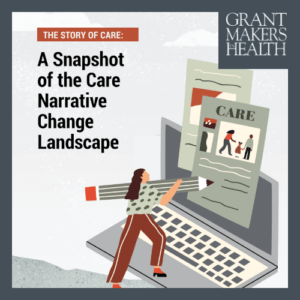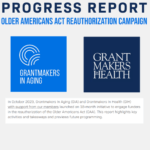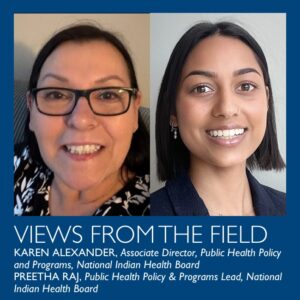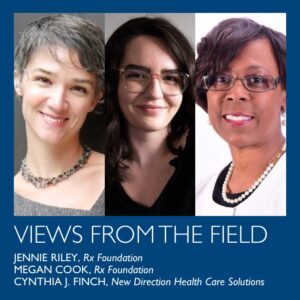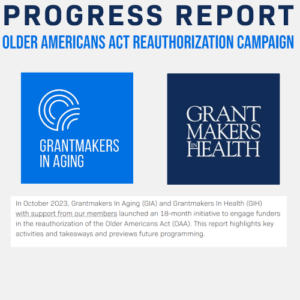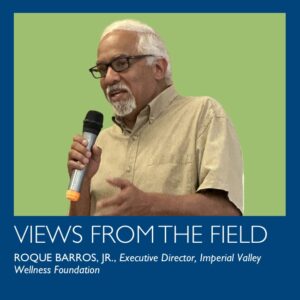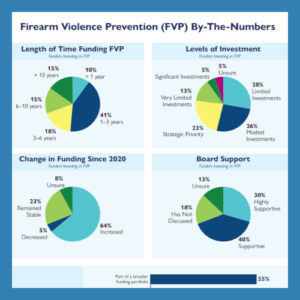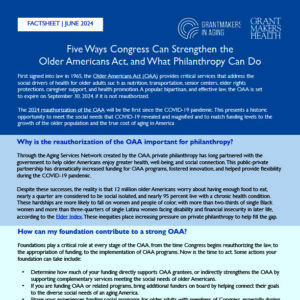Featured Resources
The People Say: A New Older Adult and Caregiver Policy and Research Tool
An online research hub features first-hand insights from older adults and caregivers on the issues most important to them, as well as feedback from experts on policies affecting older adults. The project particularly focuses on the experiences of communities often under-consulted in policymaking, including older adults of color, those who are low income, and/or those who live in rural areas where healthcare isn’t easily accessible.
The Story of Care: A Snapshot of the Care Narrative Change Landscape
At some point, every one of us will need care or need to provide care. The COVID-19 pandemic put a spotlight on the extraordinary contributions of caregivers and exposed the failings caused by our nation’s lack of care policies, especially for communities of color. Deploying narrative-change strategies across care-related issues will help create the conditions for cultural and policy progress. The goal of this report is to share with funders the promising narrative-change strategies and tactics that have been identified, a directory of funders and grantees who are supporting this work, and how philanthropy can best support this effort.
GIH Advocacy for the Reauthorization of the Older Americans Act (OAA)
The OAA provides critical services that address the social drivers of health for older adults. If the OAA is not reauthorized, it is set to expire on September 30, 2024. Grantmakers In Health (GIH) and Grantmakers In Aging (GIA) announced a partnership last year to engage funders in advancing the reauthorization of this critical piece of legislation.
OAA News and Updates
In October 2023, Grantmakers In Aging (GIA) and Grantmakers In Health (GIH) launched an 18-month initiative to engage funders in the reauthorization of the Older Americans Act (OAA). This report highlights key activities and takeaways and previews future programming.
Download the Report →Explore Population Health Topics
Latest Resources
Improving Systems of Care for Children with Special Health Care Needs
When children with chronic conditions are acutely ill, they generally receive high-quality, comprehensive medical care. Once the acute stage has passed, however, families typically find that ongoing care for a child with complex needs involves a series of discontinuous, uncoordinated, and costly services and programs.
Health Foundation for Western and Central New York’s Maternal and Child Health Initiative
Central New York has long struggled with the issue of poor maternal and child health (MCH) outcomes. While there have been some real successes over the years, poor MCH outcomes persist in the eight central New York counties served by the Health Foundation for Western and Central New York.
Changing Expectations for Care at the End of Life
The culture and system of care at the end of life present unnecessary emotional, physical, and financial burdens for patients and their loved ones. Although this is what we have come to expect, other realities are possible.
Publications and Reports
2024 Survey Summary: Firearm Violence Prevention Strategies
GIH conducted a survey in September 2024 about funder engagement in firearm violence prevention. This fact sheet summarizes the survey results with a total sample of 81 health funders. This public health crisis and social justice issue is preventable, and health funders have an important role to play in advancing firearm violence prevention efforts.
Progress Report: Older Americans Act Reauthorization Campaign
In October 2023, Grantmakers In Aging (GIA) and Grantmakers In Health (GIH) launched an 18-month initiative to engage funders in the reauthorization of the Older Americans Act (OAA). This report highlights key activities and takeaways and previews future programming.
Fact Sheet: Five Ways Congress Can Strengthen the Older Americans Act, and What Philanthropy Can Do
First signed into law in 1965, the Older Americans Act (OAA) provides critical services that address the social drivers of health for older adults such as nutrition, transportation, senior centers, elder rights protections, caregiver support, and health promotion. A popular, bipartisan, and effective law, the OAA is set to expire on September 30, 2024, if it is not reauthorized. Foundations play a critical role at every stage of the OAA, from the time Congress begins reauthorizing the law, to the appropriation of funding, to the implementation of OAA programs. Now is the time to act.
Connect With Funder Peers on Population Health
Interested in exchanging strategies, information, and questions with your funder peers? Sign up for GIH E-Forums.


